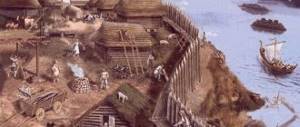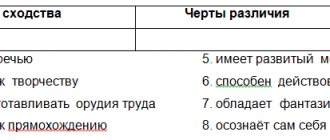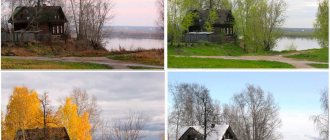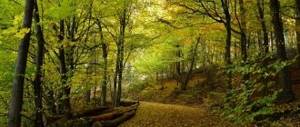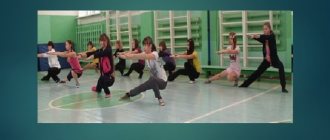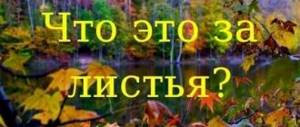Presentation for the lesson on the surrounding world “We are citizens of Russia.”
We are citizens of Russia.
Each of us has our own home, family, close relatives, friends. But we all have one common home - our country, our Russia.
We are all citizens of Russia. A citizen obeys the laws of the state and has rights.
What are the rights and responsibilities of a citizen?
All Russian citizens have equal rights and responsibilities. They are mentioned in the Russian Constitution.
What rights do we have?
The most important of them are the right to life, to personal freedom and personal integrity, to personal and family secrets, to protect one’s honor and good name, to free work and education, to rest and many others.
From the age of 18 we have the right to participate in the management of state affairs. Russian citizens elect the head of state and government officials.
The head of our state is the President of the Russian Federation. He solemnly takes the oath to the people. The head swears to respect and protect the rights and freedoms of man and citizen, to observe and defend the Constitution of the Russian Federation, to protect the independence and security of the state, and to faithfully serve the people.
President of the Russian Federation
Vladimir Vladimirovich Putin.
Federal Assembly and Government of the Russian Federation
The country's parliament is the Federal Assembly. It consists of two chambers: the Federation Council and the State Duma.
The State Duma passes laws, and the Federation Council approves or rejects them. The law comes into force after it is signed by the President.
State Duma building
The Government of the Russian Federation is developing measures to develop the economy, culture and other areas of life.
Russian Government Building
What unites the Russian people?
Firstly, it is the memory of the past of our Fatherland, of our common heroes and significant events.
Secondly, all-Russian culture, which was created and is being created by all the peoples of Russia. We are all heirs to the achievements of Russian science, art, and education.
Thirdly, this is the state Russian language.
Fourthly, state symbols: the coat of arms, flag and anthem of the Russian Federation.
That is why, collectively, the citizens of our country have every reason to call themselves the Russian people. That is why each of us has in our souls the image of our common Motherland, Russia. That is why the word “compatriot” is so dear to us, which means “citizen of our common Fatherland.”
Homework.
Imagine that you are a deputy of the State Duma. What law would you propose to pass?
Thank you for your attention.
We are citizens of Russia
Telepen Valentina Konstantinovna, teacher of history and social studies
UMK: A.A. Danilov, L.G. Kosulina “History of the State and Peoples of Russia” M. “Bustard” 2004, A.F. Nikitin “Fundamentals of State and Law” M. “Bustard”, O.V. Volobuev “Russia and the world from ancient times to the end of the 20th century.” M. “Bustard” 2006
Grade: 7-9
Subject: social studies, history
Knowledge lesson: “We are citizens of Russia”
Educational goal: to develop in adolescents a sense of love for the Motherland and pride in their country, a respectful attitude towards the glorious military-patriotic past of Russia; - bringing to teenagers military traditions, examples of courage and heroism of the defenders of the Fatherland, shown by our soldiers in peacetime and war. Developmental goal : development of the outlook of teenagers, development of logical thinking in the process of synthesis, analysis and generalization of information on the proposed topic. Equipment and materials: Constitution of the Russian Federation, multimedia projector, computer, presentation, anthem music, song “Where the Motherland Begins” (Music by V. Basner, words by M. Matusovsky), map of Russia, globe.
Epigraph: “A citizen is a person whose thoughts and actions are aimed at the good of the Fatherland, for the good of his people.”
Explanatory note
The formation of civil society and the rule of law in our country largely depends on the level of civic education and patriotic education. The modern social development of Russia has acutely posed the task of the spiritual revival of the nation. We, teachers, were prompted to do this by the real socio-political situation in the country. After all, for many Russian people in modern Russia, national dignity and national pride have become completely alien, the feeling of love for the Motherland began to weaken, a desire to leave it, a lackey attitude began to appear. Today, the relationship of a Russian citizen with the state and society is radically changing. He received great opportunities to realize himself as an independent person in various areas of life and at the same time, responsibility for his fate and the fate of other people increased. In the conditions of the formation of civil society and the rule of law, it is necessary to educate a fundamentally new, democratic type of personality capable of innovation , to manage one’s own life and activities, the affairs of society, ready to rely on one’s own strengths, to ensure one’s financial independence through one’s own labor. The modern school should contribute to the formation of such a civic personality.
Modern conditions for the development of society require the modernization of education. The beginning of the 21st century is marked by the strengthening of educational “motives” at all levels of society. A developing society needs individuals who are capable of making non-standard decisions and who can think creatively. But the implementation of civic-patriotic education only with the help of a knowledge approach is impossible. There is a need for an activity-based component of civic-patriotic education. The educational process goes through the main types of activities: play, work, cognitive, creative, educational. Consequently, it is impossible to divide the educational and extracurricular activities of students. Only through active involvement in social activities and conscious participation in it, through changing the school climate, and the development of self-government can success be achieved in this direction. This issue has acquired particular relevance in the field of patriotic education of adolescents and youth. The program of patriotic and civic education is increasingly identified as one of the priorities in modern politics. It is extremely important for us, teachers, what the person of the future will be like, to what extent he will master two important social roles - the role of a Citizen and the role of a Patriot.
You may not be a poet, but you must be a citizen.
Lessons of this content are aimed at achieving the following personal results:
1. Formation of the foundations of Russian civil identity, a sense of pride for one’s Motherland, the Russian people and the history of Russia, awareness of one’s ethnicity and nationality, formation of the value of a multinational Russian society, humanistic and democratic value orientations.
2. Formation of a holistic, socially oriented view of the world in its organic unity.
3. Formation of a respectful attitude towards other opinions, history and culture of other peoples.
4.Development of independence and personal responsibility for one’s actions.
5.Development of skills of cooperation with peers in different social situations, the ability not to create conflicts and find ways out of controversial situations.
And it’s right that the first lessons on Knowledge Day are dedicated to the Motherland, the heroic pages of its history, and culture. On this day, children all over the country “turn through” the pages of history and travel around the country in absentia. This lesson “We are citizens of Russia” is designed for 1 hour for students in grades 7-9. The specificity of the lesson is that, having a pronounced integrative nature, it equally combines social science, historical knowledge and gives students material on social and humanitarian sciences, necessary for a holistic and systematic vision of the world in its most important relationships. The lack of information is compensated by the search and research activities of students. During the lesson, the following methods are used: partial search, verbal, visual and illustrative, problem dialogue. Forms of organization of students’ cognitive activity: group, frontal.
I. Organizational moment (The song by V. Basner - M. Matusovsky “Where does the Motherland Begin?” is played? II. Updating of basic knowledge. – Why do you think our lesson began with such a song, what will be the topic of today’s lesson? – That’s right, today we Let's talk to you about the Motherland. - Choose synonyms for this word Predicted result: Fatherland, Fatherland Teacher: What is the Motherland? Where did the word “motherland” come from? Predicted result: The word “motherland” comes from the ancient word “clan”, which denotes a group people united by blood. Each of us is a descendant of some ancient ancient clan. And the word “clan” itself means the most ancient god of the Slavs, Rod. - In ancient times, the country was called Russia. The word "Rus", as some scientists believe, came from words "bed". The bed is the bed of the river along which it flows between the banks. Russia is a bright place. Russians are also called Rossos, and the country where they live is Russia. Teacher: You have a document on your desk. Name it. Predicted result: Constitution, Basic Law of the State. Teacher: We will refer to this document many times during the school years. Today we will pay attention to only a few articles of the Constitution. In a big country, every person has his own small corner - the city, street, house where he was born. This is his little homeland. And our common, great Motherland consists of many such small corners. She is huge and beautiful. And everyone has one. What is the name of our Motherland? How does the Constitution answer this question? Predicted result: chapter one, article 1: the names Russian Federation and Russia are equivalent. Teacher: Russia is the largest country in the world. Look at the map. (Slide No. 2, globe). No state has such a large territory and such a long border. Russia's borders extend both by land and by water. Each country has its own state symbols. The word “symbol” in translation means sign, password, signal. — Do you know what belongs to the state symbols of Russia? Predicted result: Coat of arms, flag, anthem. A coat of arms is a distinctive sign of a state, city, or clan depicted on flags, coins, seals and other state documents. The word "coat of arms" means "inheritance". It reflects history. (Slide No. 3). The golden double-headed eagle is a symbol of the eternity of Russia, a symbol of the preservation of the Orthodox faith among the Russian people. Two eagle heads remind of the historical destiny of Russia, connecting East and West. And the eagle’s chest is protected by a shield with the image of St. George, George the Victorious. Since ancient times, Saint George has been the most revered in Rus'. He was considered the intercessor of man, protecting him from the forces of evil, fearlessly entering into the fight against the most formidable and dark force. Flag of the Russian Federation. The national flag of the Russian Federation is a rectangular panel of three horizontal stripes of equal size: the top stripe is white, the middle stripe is blue, and the bottom stripe is red. Our Russian flag is tricolor. Color is given a special meaning. White means peace and purity of conscience, blue means sky, loyalty and truth, red means fire and courage. (Slide No. 4) August 22 is celebrated in our country as the Day of the State Flag of the Russian Federation. Teacher: What is a hymn? Predicted result: The word “hymn” is of Greek origin, it means “solemn, song of praise.” An anthem is a song dedicated to one’s homeland. This is a symbol of the state, everyone should know and honor it. Often at holidays and military parades we hear a solemn song called the anthem. The anthem is a solemn song performed on special, most important occasions (Slide No. 5, the Anthem sounds). Teacher: Tell me, in what situations is the national anthem performed? Predicted result: We always listen to the anthem standing and silently. They turn it on for us at the moment of celebration. Teacher: For a complete description of our state, let us return again to the Constitution, to the first chapter, article 1. Predicted result: Russia is a democratic state Russia is a rule of law state Russia is a federal state
Russia is a social state
(Appendix No. 1)
Teacher: What does a democratic state mean? Predicted result: Constitution Chapter 1, Article 3, paragraphs 1-3. Teacher: What does a federal state mean? Predicted result: Constitution chapter, article 5, paragraph 1. Teacher: What does a social state mean? Predicted result: Constitution chapter 1, article 7, paragraph 1. Teacher: What does the rule of law mean? Predicted result: Constitution Chapter 1, Article 2 Teacher: 42 articles are devoted to the rights and freedoms of man and citizen. These rights are innate, i.e. given to a person from the moment of birth and inalienable. Group work: Invite a discussion about what students know or think about human rights. Get a collective opinion on what human rights are. Students name human rights. Predicted result: The right to life, to citizenship, to personal integrity, to freedom of conscience and religion, to govern the country, etc. (Slide No. 6, Appendix No. 2). Teacher: You named the rights of an adult. They are written in the Universal Declaration of Human Rights and the Constitution. And the rights of the child are written down in the 1989 Convention on the Rights of the Child. (Slide No. 7, Appendix No. 3). While studying the history of your state, you witnessed how many wars the Russian people had to endure in order to protect their legal rights. Name the events. Predicted result: attack of the Pechenegs, Polovtsy, invasion of the Mongols, German, Swedish knights, intervention of Poland and Sweden, the war with Napoleon, the Great Patriotic War. Teacher: And these are only the most significant military battles. And now you will be offered slides of historical monuments. You must identify a historical event and provide brief information about that event. Slides No. 8-18: Battle of the Ice, Mongol invasion, Battle of Kulikovo, intervention of Poland and Sweden, Borodino, Great Patriotic War. (You can disrupt the chronology of historical events). Teacher: For us, Sakhalin residents, the task of preserving the territorial integrity of Russia comes first. Why? Predicted result: This is due to the Japanese side’s claims to the islands of the Lesser Kuril chain. Teacher: We need to remember the words of the great Russian commander A.V. Suvorov “What is taken in battle is holy!” And he was absolutely right. The islands for which the soldiers of the Fatherland shed their blood were and will be ours. I would like you to always remember that you are citizens of a great country with a rich and glorious history, honor its symbols, and be proud of your country. You are citizens of a multinational country united by the same state symbols. Each person has his own path in life and it depends only on him what his path and his future will be. You are the children of Russia - you are the hope and future of our country. All in your hands! 2012 has been declared the year of Russian history. Why do you think this year? Predicted result: students say that 2012 is a year of historic anniversaries. 200th anniversary of the Battle of Borodino 400th anniversary of the militia of Minin and Pozharsky 200th anniversary of the victory over Napoleon 770th anniversary of the Battle of the Ice Teacher: Historians also agreed with you. They explain this by the fact that it is necessary to support and strengthen in modern society interest in national history, respect for the exploits and achievements of our people. In a word, to fulfill the behest of A.S. Pushkin: “It is not only possible, but also necessary to be proud of the glory of your ancestors; not to respect it is shameful cowardice.” You can read an excerpt from the competition essay “My Place in the State” by 10th grade student Suprun Angelina. (Appendix No. 4) I propose to conduct the next knowledge lesson in November. Why? Predicted result: November 4 – National Unity Day. Teacher: We live in region 65, and in 2012 the 65th anniversary of the Sakhalin region is celebrated. What a wonderful coincidence! And I propose to dedicate a lesson of knowledge to my small homeland: the Sakhalin region, the city of Uglegorsk. And you have the opportunity to show your citizenship and creativity when preparing for a knowledge lesson. (Slide No. 22-26) As a reinforcement, I suggest the game “Who Wants to Be a Millionaire”
Our common home is called Russia, Let everyone in it be comfortable. We will overcome any difficulties. And only in unity is the strength of Russia. Take care of Russia, we cannot live without it. Take care of her so that she can forever be Our truth and strength, Take care of Russia with all our destiny - there is no other Russia.
Literature.
1.The Constitution of the Russian Federation. 2. V.V. Alekseev “Historical calendar. Ten centuries of Russian history. M.1996 3. B.N. Serov “State symbols” M. 2005 4.zh. “Teaching history and social studies” No. 4 2012 5. Internet resources
